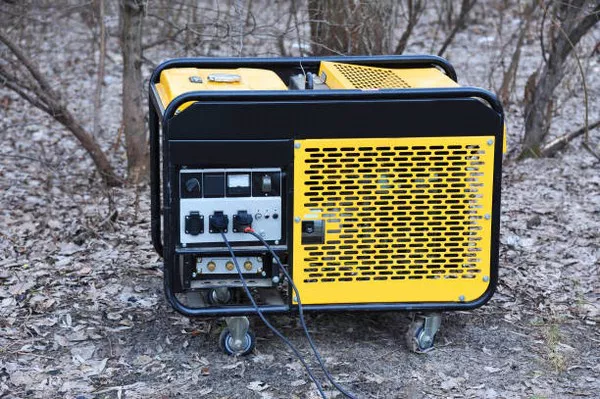In times of power outages, a reliable generator can be a lifesaver, providing electricity to keep essential appliances running. Propane generators have gained popularity due to their efficiency, cleaner emissions, and ease of storage. One crucial aspect that users often inquire about is the runtime of a generator on propane. Understanding the factors that influence runtime can help users make informed decisions about their power needs and fuel management.
Propane as a Reliable Fuel Source
Propane, also known as liquefied petroleum gas (LPG), is a versatile fuel that has found its place in various applications, including power generation. Propane generators offer several advantages, such as cleaner combustion, lower greenhouse gas emissions, and longer shelf life compared to other fuels. Propane is stored in liquid form, making it a dense energy source that can be efficiently transported and stored for extended periods without deterioration.
Factors Influencing Propane Generator Runtime
Several factors contribute to the runtime of a propane generator. Understanding these variables is crucial for users to estimate how long their generator will operate on a given amount of propane.
1. Generator Capacity:
The capacity of the generator, often measured in kilowatts (kW), plays a significant role in determining runtime. Larger generators with higher capacities consume more fuel to generate electricity. When selecting a generator, it’s essential to match its capacity with the anticipated load to optimize fuel efficiency.
2. Propane Consumption Rate:
The rate at which a generator consumes propane is a critical factor in determining its runtime. This is typically expressed in gallons or pounds of propane per hour. Manufacturers provide this information in the product specifications, helping users estimate fuel consumption based on their generator’s load.
3. Load on the Generator:
The actual electrical load placed on the generator is a pivotal factor affecting runtime. The more appliances and devices connected to the generator, the higher the load, resulting in increased fuel consumption. Users should prioritize essential appliances during a power outage to extend runtime.
4. Generator Efficiency:
The efficiency of a propane generator influences how effectively it converts fuel into electricity. Modern generators are designed with advanced technology to optimize efficiency, providing users with longer runtimes for the same amount of fuel compared to older models.
5. Propane Tank Size:
The size of the propane tank is a straightforward determinant of how much fuel is available for the generator. Larger tanks can store more propane, providing an extended runtime. Users should consider the available space for tank installation and their expected power needs when selecting the appropriate tank size.
6. Ambient Temperature:
Propane generators may experience variations in runtime based on ambient temperature. Cold weather can affect the vaporization of propane, potentially reducing the efficiency of the fuel delivery system. Users in colder climates should account for this when estimating runtime.
7. Altitude:
The altitude at which the generator operates can impact its performance. At higher altitudes, the air is thinner, affecting combustion and fuel efficiency. Manufacturers often provide altitude-specific performance data, allowing users to make accurate runtime predictions based on their geographic location.
Calculating Propane Generator Runtime
To estimate the runtime of a propane generator, users can follow a straightforward calculation using the generator’s propane consumption rate and the total propane available. The formula is as follows:
Runtime (hours)=Propane Tank Size (gallons or pounds)*Propane Consumption Rate (gallons or pounds per hour)
Users should consider the generator’s efficiency, load, and other environmental factors to fine-tune their estimates. Regular maintenance, such as cleaning air filters and checking for leaks, can also contribute to optimal generator performance and fuel efficiency.
See Also: How Long Do Generac Generators Last
Conclusion
Propane generators offer a reliable and efficient solution for powering homes, businesses, and essential appliances during power outages. Understanding the factors that influence generator runtime is crucial for users to make informed decisions about their power needs and fuel management. By considering the generator’s capacity, propane consumption rate, load, efficiency, tank size, ambient temperature, and altitude, users can estimate how long their generator will run on propane and plan accordingly. Regular maintenance and adherence to manufacturer guidelines will ensure the generator operates at peak performance, providing a dependable source of power when needed most. As technology continues to advance, propane generators are likely to become even more efficient, offering longer runtimes and further contributing to energy resilience in the face of unforeseen challenges.

